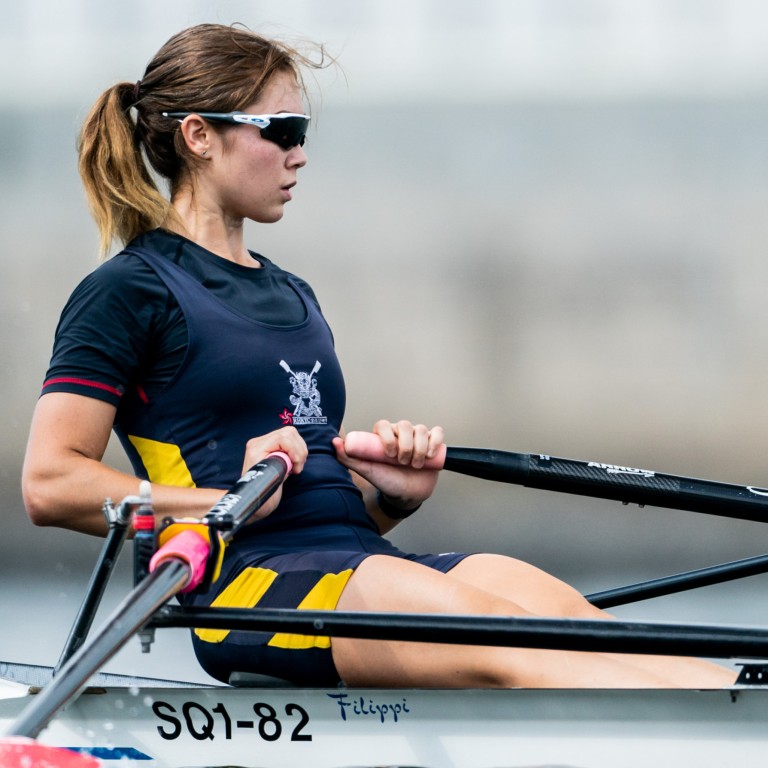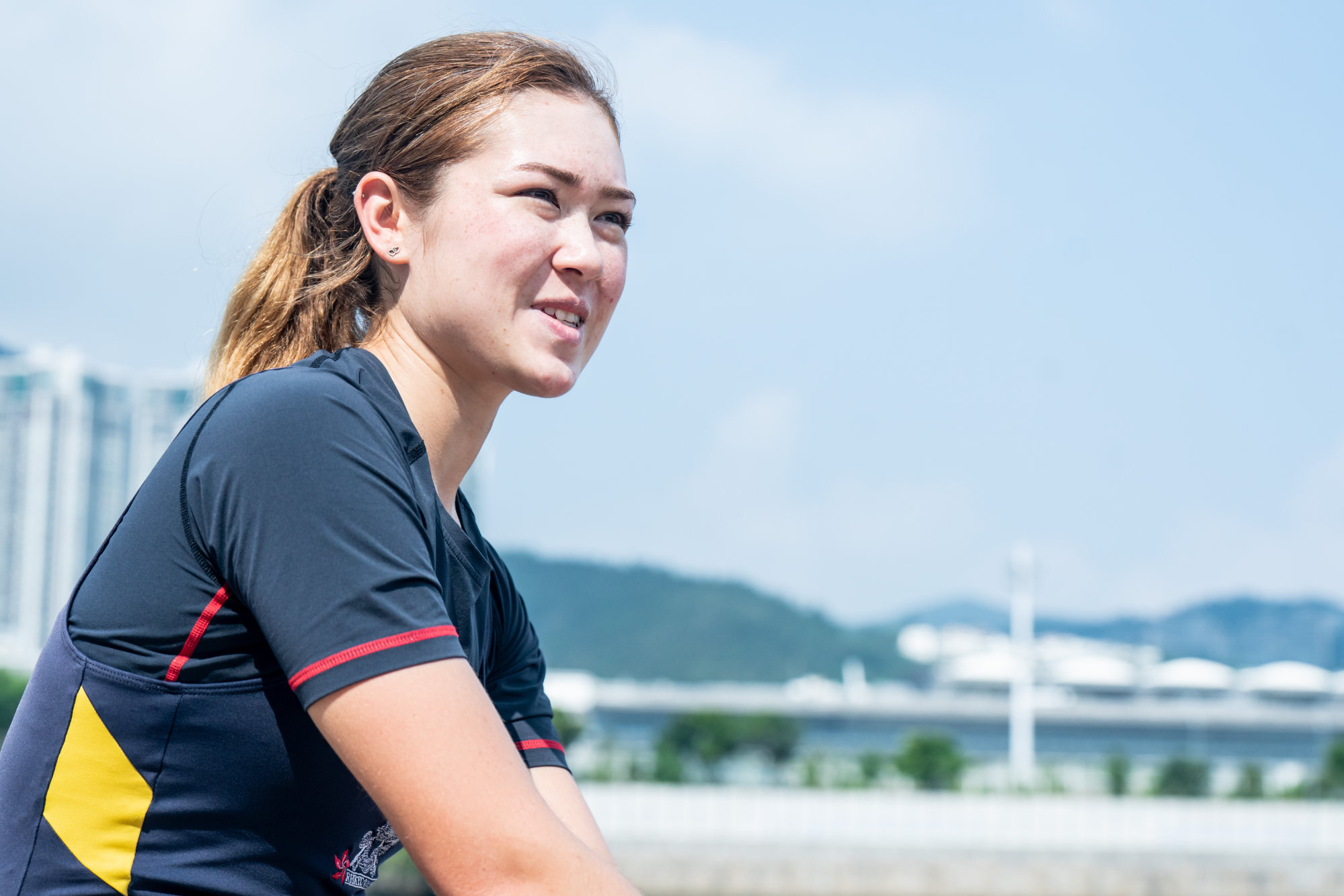
Rowing record-breaker who overcame an eating disorder joins race to raise money for Hong Kong charities and hopes to stimulate conversation about mental health
- Claire Burley was motivated by her own battles with anorexia and bulimia to join a 45km solo rowing race challenge to fund-raise for causes close to her heart
- She wants more women to get into sports, and for people to open up more about mental health, something she says is ‘a really, really big part of my life’
A 45km (28 mile) row would be a daunting task for many, but the biggest worry for Hong Kong national rowing team member Claire Burley is whether she will be bored.
About 150 rowers will take part in the Royal Hong Kong Yacht Club’s annual “Around the Island” race, a lap around Hong Kong Island, on November 25. Burley took part in the previous race as part of a duo; this will be her first time tackling the course solo.
Her aim is to raise funds for two local charities she holds close to her heart – Women in Sports Empowered (Wise) and Mind HK.

Mind HK offers online resources about mental health issues and affordable access to a network of health professionals. The Wise initiative encourages women to get active through a mentorship programme that partners young women with female industry leaders.
“I think there’s still a bit of a hesitancy for women to do sports. You feel a bit embarrassed about using the equipment, or you’re just too worried about what people think,” says Burley.
Why people document eating disorder recovery on Instagram
She has set up a Simply Giving fundraising page – Claire’s Solo Row 45km Around Hong Kong Island – and hopes to raise HK$50,000 (US$6,400) to split between the two charities.
She developed a distorted body image, which led to excessive dieting and a fear of gaining weight, and her weight had dropped to 39kg before she sought professional help in 2014.
All it takes really is just one person to ask if you’re OK. And sometimes that doesn’t happen, which I think is a bit of a shame
Burley began studying performing arts at De Montfort University in Leicester, central England in 2015, and her weight rose from 54kg to about 62kg, which doctors considered to be “healthy”.
Although she was still not well mentally, she was not getting the professional help she still needed because she had physically recovered.
Balancing her studies with a new university routine took a toll on her social life, and she began missing training sessions with the basketball team she had just joined.

“Even on the days I would turn up to training and play really well, people would always be quite negative towards me. And never once was I asked, ‘Is everything OK?’ It was just more about, ‘Why aren’t you turning up?’
“All it takes really is just one person to ask if you’re OK. And sometimes that doesn’t happen, which I think is a bit of a shame.”
Without the resources and support she had the previous year, her eating disorder developed into bulimia – binge eating that is usually followed by self-induced vomiting and excessive exercise to avoid weight gain.
What causes anorexia – and how to support someone battling it
Burley took up rowing during her second year at university at a time when she had been considering abandoning her studies. That decision transformed her life – not only did she perform better academically, it helped her overcome her eating disorder.
“It brought a bit more structure back to my life. I went from just barely passing university and to coming out by my third year with top grades,” she says. “Rowing taught me to not be afraid of food, how to properly fuel myself, how to enjoy it.”
Burley returned to Hong Kong in 2020 and joined the Royal Hong Kong Yacht Club, and was quickly selected to join the national rowing team. Rowing brought her better balance in her life, she says, and greater awareness of her mental state.
Joining a sports group is a great way to get active and there is an abundance of communities in Hong Kong that are a simple internet search away, she says.

For Burley, who trains with the national team and rows 20km on average each day and does mixed cardio and strength training, a 45km row around the island may be a relatively easy feat.
Last year, she completed the race with a partner in four hours and 16 minutes. She hopes to cross the finish line this year in six hours. Only two other rowers will be tackling the event solo this year.
“It’s going to be really long, so I’m most concerned that I’ll get bored,” Burley says, laughing.
‘It’s OK to not be OK’: female athletes open up about mental health
Eating disorders affect around one in 200 female school students in Hong Kong, according to the Institute of Mental Health at Castle Peak Hospital in the city’s Tuen Mun district.
“I’d like to see a lot more ladies getting into sports. It doesn’t need to be intense, it can just be about getting into a little running group. I really think it’s just about feeling comfortable in doing sports and feeling empowered,” Burley says.

